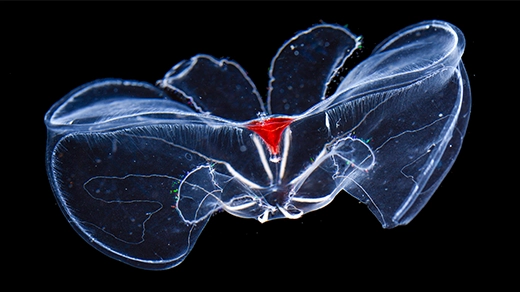What's up in
Evolution
Latest Articles
The Hidden World of Electrostatic Ecology
Invisibly to us, insects and other tiny creatures use static electricity to travel, avoid predators, collect pollen and more. New experiments explore how evolution may have influenced this phenomenon.
The Cellular Secret to Resisting the Pressure of the Deep Sea
Cell membranes from comb jellies reveal a new kind of adaptation to the deep sea: curvy lipids that conform to an ideal shape under pressure.
The Physics of Cold Water May Have Jump-Started Complex Life
When seawater gets cold, it gets viscous. This fact could explain how single-celled ocean creatures became multicellular when the planet was frozen during “Snowball Earth,” according to experiments.
The Mystery of the Missing Multicellular Prokaryotes
Why have bacteria never evolved complex multicellularity? A new hypothesis suggests that it could come down to how prokaryotic genomes respond to a small population size.
Tiny Tweaks to Neurons Can Rewire Animal Motion
Altering a protein in the neurons that coordinate a rattlesnake’s movement made a slow slither neuron more like a speedy rattle neuron, showing one way evolution can generate new ways of moving.
Cellular Self-Destruction May Be Ancient. But Why?
How did cells evolve a process to end their own lives? Recent research suggests that apoptosis, a form of programmed cell death, first arose billions of years ago in bacteria with a primitive sociality.
Mollusk Eyes Reveal How Future Evolution Depends on the Past
The visual systems of an obscure group of mollusks provide a rare natural example of path-dependent evolution, in which a critical fork in the creatures’ past determined their evolutionary futures.
A Multitalented Scientist Seeks the Origins of Multicellularity
The pathbreaking geneticist Cassandra Extavour pursues the secrets of multicellular life while balancing careers in both science and singing.
How Did Altruism Evolve?
If evolution favors the survival of the fittest, where did the impulse to help others come from? Host Janna Levin speaks with Stephanie Preston, a neuropsychologist who studies the biology of altruism.








